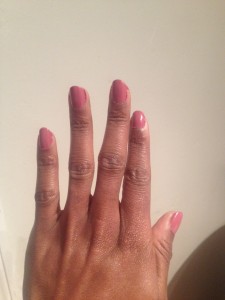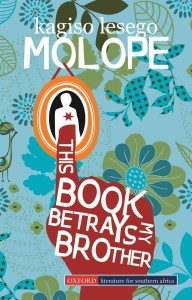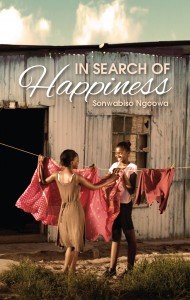Many of us who grow up intersex, lesbian, gay, or generally with a gender non-conforming way of being often have a difficult time in developing positive self image and self identity. Growing up is complicated further when you have to negotiate this non-gender conforming way of being and/or same-sex attraction with having an African identity. The now very famous adage “homosexuality is un-African” is a deeply held belief that has seeped into almost every segment of African society.
It has been repeated ad nauseam by different statesmen from different corners of the African continent people like Robert Mugabe of Zimbabwe, Yoweri Museveni of Uganda, Goodluck Jonathan of Nigeria, Jahya Jemmeh of Gambia, the Congress of Traditional Leaders in South Africa. This axiom has come to hold as much power as bible scriptures. It is used at once to denounce the sexual immorality of Western society that is supposedly infiltrating Africa while at the same time promotes the sexual morality of Africans. Growing up in South Africa I was very aware of the supposed contradiction of African identity and homosexuality and how these two things couldn’t and shouldn’t intersect.
The sentiment of homosexuality as un-African is a postcolonial phenomenon. Anti-colonial movements never really addressed the question of homosexuality. The ANC was forced to deal with the issue of homosexuality towards the end of apartheid. We need a queering up of postcolonial understanding of Africa through problematizing the logic used to discriminate against homosexuality. The recent anti-homosexuality laws that have been enacted in Uganda and Nigeria and the passive response, which I read as consent, from African leaders, including South Africa, speak to the narrow and limited interpretation of postcolonial existence in postcolonial Africa.
What does it mean to be an African in postcolonial times, a time that some argue is not as “post” colonial as we would like to believe? What do we do with a postcolonial existence that does not look like the postcolonial world imagined when independence was won and democracy instituted? The ongoing battle over the “authenticity” of the African homosexual is really a battle of what does it mean to be African in the fraught postcolonial existence. Who are we and where are we situated in history? These are really big questions. It is not the task of this piece to address African existential questions. I want to take issue with the ways in which homosexual discrimination is constructed, and then talk about the possibilities for self-invention that are created by a free imagination.
The complexity of postcolonial life needs to be negotiated carefully, and moving away from simplifying human experience in African is paramount. There are three main arguments that are often evoked against homosexuality in Africa. Firstly there is a fictitious Africa that we are often told about where homosexuality never existed. Secondly, religion is used to substantiate the arguments against homosexuality. Popular scriptures are used like the famous Leviticus 18:22 to demonstrate how it is against god to have same-sex attraction. Lastly I interrogate how African homosexuals are misguidedly used to snub supposedly Western imperialism.
Postcolonial reality is burdened with complexity that will not be solved in the near future. Complexity that is baggage from colonialism, the partition of the continent, independence/democracy with “development” loans, which has all lead to unstable economies, poverty, and civil wars. People underestimate the deep and long lasting consequences that colonialism, and in South Africa apartheid, has had on African states.
One of the ways in which Africans deals with the heaviness of a colonial past that paints the African as savage, with no history, hyper sexual, and with no contribution to the development of the world – there is a creation of what Africa looked liked, what Africans used to do with their bodies prior to colonialism. This fictitious Africa is without same-sex attraction, same-sex love, and same-sex marriage. It is an Africa without any homoerotic tendencies. This fictitious Africa is a place where homosexuality doesn’t exist. In this artificial pre-colonial Africa, same-sex love has never existed. It is seen as learned from Western colonizers upon arrival.
This argument makes me wonder what does it mean to learn, adopt, and/or copy from Western countries? The structures of many African universities, physically and philosophically, are modeled after European universities. Shouldn’t they be outlawed as well? Albeit sometimes reformed, the parliamentary systems and “democracy” are all systems of governance adopted from the West. The very constitutions governing African states outlawing homosexuality as a Western construct are rough drafts from Western countries. The “homosexuality is copied from the west” excuse is an ignorant and inconsistent excuse to discriminate against homosexuals.
Anti-homosexuality arguments are draped with concern over the disappearance or pollution of African culture. The many ways in which African culture can be preserved for future generations does not include the execution of homosexuals. The best ways in which African culture and traditions can be preserved is by writing books that chronicle African life, we should be writing textbooks and novels in isiXhosa and isiZulu and other indigenous languages. We should be building language institutes and cultural centers whose main goal is to document and preserve culture. We should be making sure that schools in townships, in rural areas, in far flung areas are well equipped to teach students in the vernacular and to teach the history of the very culture in which society is trying to preserve.
Preservation of African culture, African traditions, and African ways of being means that you incentivize people who speak, read and/or write more than two, or three or four African languages. Create and subsidize publishing houses that publish work in indigenous languages. This will go much further and will actually help in preserving some essence of culture, at least in archival form. Indigenous languages are only glorified in the constitution, and South Africans love boasting to foreigners that they have eleven official languages. In reality South Africans mostly use one language, English, all the other ones are basically ornamental, unless of course you live in Stellenbosch.
Now if government leaders were interested in the preservation of African culture, languages would be a priority because we know that culture is lived through language. This is more so for African communities because many of our cultures have not been written down like most of Western culture. Our cultures are passed down mostly orally which means they live and breathe only as far as people speak and practice them. What I have outlined here are concrete steps towards the preservation of African culture and traditions. The creation of laws that seek to prohibit two people of the same-sex from loving and sexually pleasing each other will not do much for the preservation of African culture and traditions.
The issue here is not about African culture. If it were, other strategies of preserving the culture would need to be employed. Moving away from talking about a fantasy Africa is important because we need to be talking more about the Africa we want to live in, an Africa that Nelson Mandela hoped would be “at peace with itself.” An Africa at peace with itself will not be achieved by “correcting” African lesbians through rape or by imprisoning people that are suspected of being homosexuals.
In trying to understand the anti-homosexuality laws, discrimination, and violence I wonder how in the postcolonial narrative homosexuality is Western but Christianity is not branded the same. Christian fundamentalists do not even bother to engage with the arguments that Christianity is un-African. Africans who live according to the bible often act like they are better than people who don’t read the bible. It has been my experience that religious people are the most heartless and will maim people in the name of god.
When listening to the news, reading newspapers, or listening to friends talk, religion is always tip toed around. There is a double standard in our society on calling out religious fundamentalists about the ways in which they inflict pain, harass, and oppress people who are non-believers. African homosexuals have been heavily affected by the hatred of the church, and that’s what it is, hatred.
Religion is not unlinked to colonialism, and I would have imagined that as a society we would have reservations about religion, especially Christianity because it came to be a force on the African continent through missionaries. The missionaries saw the African way of life as barbaric, savage like, and in much need of civilising. The Christianity that is used to demonise homosexuality is the same Christianity that was used to demonise black people during apartheid. We often skirt around the horrible role that religion played in the construction of black Africans as other in colonialism and in apartheid South Africa.
The very people who orchestrated apartheid were reading the same bible that black South Africa were reading then, and continue to read. We are oblivious to the fact that the very notions that are used to lash out by the majority of black Africans on African homosexuals were used by white Europeans in rationalising colonisation of the African continent; indeed apartheid in South Africa.
When I think about colonisation, apartheid, and the bible I am reminded of Eugene De Kock’s confession that he really believed that he was carrying out the mission of God, that black Africans, particularly in the ANC were against God and the state and so should be killed. The bible that Eugene De Kock and many others in the South African Defence Force during apartheid carried the state issued bible with a message from P.W. Botha and it partly read: “The bible is an important part of your calling to duty. When you are overwhelmed with doubt, pain, or when you find yourself wavering, you must turn to this wonderful book of answers. …… It is my prayer that this bible will be your comfort so that you can fulfil your duty.” The “fulfil your duty” from P.W. Botha includes the mutilation of thousands of African bodies at the hands of the South African Defence Force written in a bible. The bible has now found new use, to oppress and to vilify people with divergent sexual orientations. So yes, I am extremely skeptical about the bible and I am vigilant on whom and how it is used to oppress. Religion can and has been used for the most evil of purposes. As Africans we need to be attentive indeed critical of religion because it is the very religion that was used to justify our enslavement.
The convoluted nature of postcolonial reality is revealed when draconian anti-homosexuality laws, which harken back at puritanical anti-sodomy laws, are being created by Africans to oppress fellow Africans in the name of a colonial Jesus. The messiness of postcolonial life is also revealed at burials where priests and church leaders preside over mutilated bodies of African lesbians in South Africa but fail to link the church’s hatred of homosexuality and the consent it generates for the murders of African lesbians. The Christian obsession with people’s sexuality and “how” homosexuals have sex knows no boundaries, to a point where gay pornographic videos are shown in church.
In the tirade against homosexuals many are oblivious or look the other way at African men and women who are not “gay” or “lesbian” but engage in what sociologist would call situational homosexual sex. This is the sex between people of the same-sex that would occur in prisons, in boarding school, in the mines, and in woman only spaces, not because these people necessarily identify as homosexual but the opportunity for same-sex sex presents itself. With this then I would echo Michelle Foucault’s assertion that people are not really affronted about homosexual sex per se but are unsettled by the audacity of people to actually love each other.
I advocate caution with the ways in which everything “African” is measured by “going against the West.” We need to interrogate the narrative that ALL that we are as Africans is what the West in not and vice versa. This is not to say that there aren’t differences between African cultures and Western cultures, there are, but we need to be vigilant of the simplistic rendering of acts, in this case sexual acts, as black and white. Human life is far more sophisticated than that. Human existence and world history provides a precarious and fraught colonial history that impacts on African life today. A history that is difficult to understand because it is ever shifting.
This reactionary business of always going in the opposite direction of the West, for the sake of moving in the opposite direction, just so we are not like them, is not helpful to the African Renaissance. It is not helpful in our journey of building a continent with people who are at peace with themselves. We cannot un-do colonialism; we cannot create legislation to govern people’s lives in 2014 with an invented pre-colonial existence. This is not to say that there was no pre-colonial African life, or that life should be ignored, on the contrary, we can write books about it. What I am suggesting is that, yes, we need to deal with the fact that what we are as Africans today is probably not what we would have been without colonization. But we also have to know and believe that even without the influence of colonization, what we were in 1652 we wouldn’t be the same people in 2014.
The insinuation that African homosexuals are only but a product of the West is really insulting and negates LGBTI people’s agency. It is misguided because the African homosexual has worked tirelessly to create a self without a model. The African homosexual has against horrendous odds claimed an identity that is demonized and relegated to the bottom of humanity. In spite of all of this, the African homosexual says I am here. It would seem to me that African homosexuals embody the spirit of the African Renaissance. They have taken the possibilities afforded by postcolonial reality and in South Africa by post-apartheid freedom and crafted a self, a sexual self.
Remember amongst many things taken from us by colonialism, it robbed us of a way to construct ourselves, but living in postcolonial times we have the opportunity to imagine and subsequently create the Africa and the African-self we envision. The African homosexual is probably one of the greatest examples of the prospects fashioned by living in postcolonial times, the opportunity for self-invention. Freed from the shackles of colonialism, the possibilities are endless and they include forming a sexual self that is different. There cannot put a limit placed on how we imagine a future Africa. We cannot cap the potential of human imagination in how people see themselves and their world and their future. So, instead of stoning, imprisoning, or maiming African homosexuals, I would advocate using them as examples of an uncapped imagination, of possibility, and freedom in a convoluted postcolonial reality.


